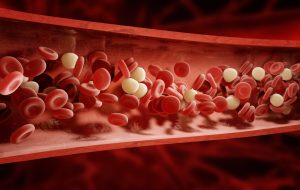Keeping your mouth healthy is important for overall health and well-being. You may be obedient in brushing and flossing your teeth regularly, but certain bad habits could still harm your oral health. You may not know it, but common habits can take a toll on your teeth and gums.
Nail Biting
Biting your nails is a habit that could impact your oral health. Not only can it chip or crack your teeth, but the bacteria under your nails can get into your mouth and cause infections. The grinding friction of teeth against nails can gradually wear away the enamel. It may even cause your teeth to move, leading to malocclusions (problems with the bite) and gaps. Moreover, nail biting can also damage your jaw joint and cause pain in the temporomandibular (TMJ) area.
Using Your Teeth as Tools
The teeth are not meant to be used as tools. But sometimes, in moments of desperation or convenience, you may find yourself biting down on items such as scissors or bottles instead of using your hands or other tools. This habit can lead to chips and cracks in your teeth, which can undermine the mouth’s health and make you more susceptible to dental problems like cavities. This habit is also dangerous, as it can cause cuts in the gums and roof of the mouth.
Clenching and Grinding
Clenching and grinding, also known as bruxism, is a habit that puts your teeth at risk. Bruxism can cause the enamel to wear away and weaken, leading to pain in the jaw, headaches, and even tooth loss. Furthermore, clenching your teeth can lead to the wearing away of the enamel and revealing sensitive nerves. This pressure may also cause abscesses in your gums and damage them permanently. These habits can sometimes be caused by stress or other underlying conditions such as sleep apnea.
Having Carbonated Drinks
Carbonated drinks are highly acidic, which means they can wear away at the enamel of your teeth and cause damage. Over time, this can lead to discoloration, cavities, and even tooth decay. Carbonated drinks are also high in sugar, which can promote the growth of bacteria.

Smoking
Smoking not only increases your risk of health problems like cancer, but it can also cause severe damage to your mouth and teeth. Smoking is known to cause discoloration and staining on the teeth and a buildup of plaque and tartar. It can also contribute to gum disease and bone loss in the jaw.
Brushing Too Hard
Sometimes, people think that harder is better when brushing. However, brushing too hard can do more harm than good. Brushing too hard can wear away the enamel on your teeth and cause gum recession. In addition, using hard bristles on your teeth can cause damage to the gums, leading to pain and sensitivity.
Not Flossing Enough
Daily flossing removes plaque from between the teeth that toothbrush bristles cannot reach. When plaque is not removed regularly, it leads to tartar buildup, which is much harder to remove than plaque and will require professional help from a dentist or hygienist. It also causes an increased risk of gum disease and tooth decay.
Chew Tobacco Products
Chewing tobacco products is one of the most harmful habits for oral health. Its high sugar content increases the risk of developing cavities and periodontal (gum) disease due to irritation caused by products such as smokeless tobacco or snuff. These products also contain nicotine, which is linked to an increased risk of oral cancer and thrush (an infection caused by a yeast fungus).
Replace Bad Habits with Good Ones
Fortunately, bad habits can be replaced with good ones. Here are ways how you can replace some of the above-mentioned bad habits
- Brush and floss your teeth twice a day
- Avoid chewing on hard objects or biting your nails. When you feel the urge to do so, opt for sugar-free chewing gum instead or chew on vegetable sticks like carrots and celery.
- Avoid using your teeth to open a bottle or tear open packaging. Always bring the appropriate tools to do the job.
- Avoid drinking carbonated drinks and opt for water or unsweetened tea instead.
- If you smoke, try to quit as soon as possible.
- Visit your dentist regularly for checkups and cleanings to prevent dental problems from developing or worsening.
- Discuss treatment options with your dentist if you grind your teeth while sleeping. They may recommend a custom-fitted night guard to prevent further damage.
- When brushing, be gentle and use soft bristles. Soft bristles are better at removing plaque than hard ones. Additionally, practice brushing in a circular motion and take your time.
- After meals, rinse your mouth with water or use an antibacterial mouthwash to remove food particles and reduce plaque buildup.
- If you have trouble remembering to floss, set reminders on your phone or make it part of your daily routine
Neglecting your oral health could result in long-term damage or even serious medical complications. By recognizing these common bad habits, you can improve your oral hygiene routine and ensure you have a healthy smile for years to come!












